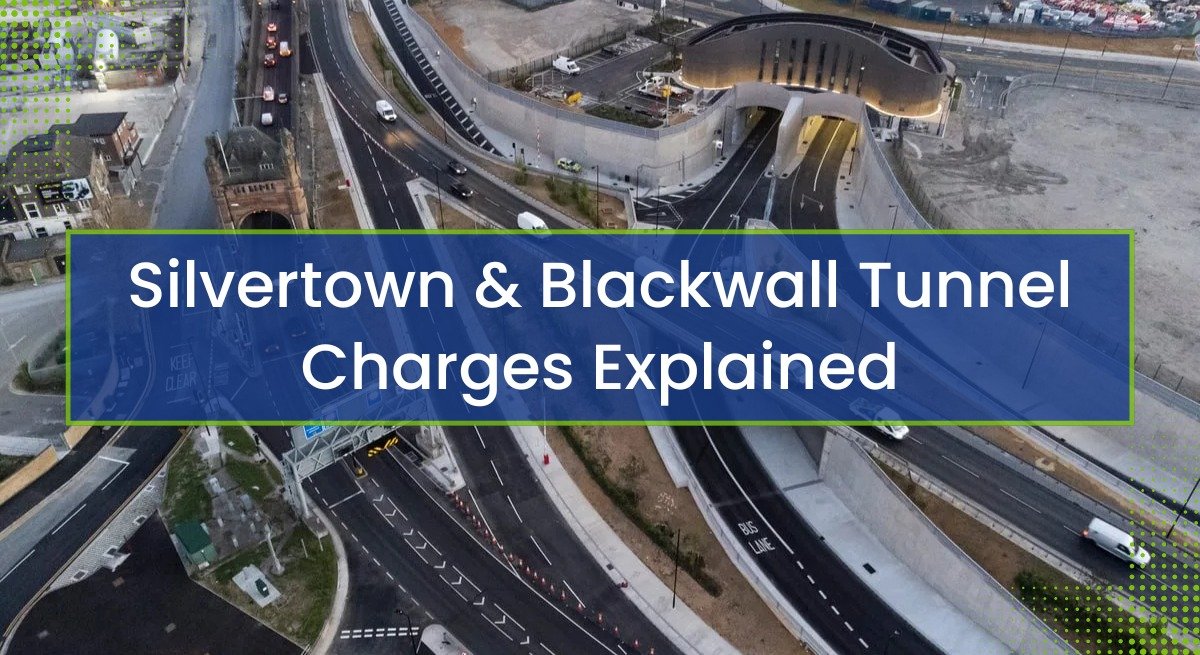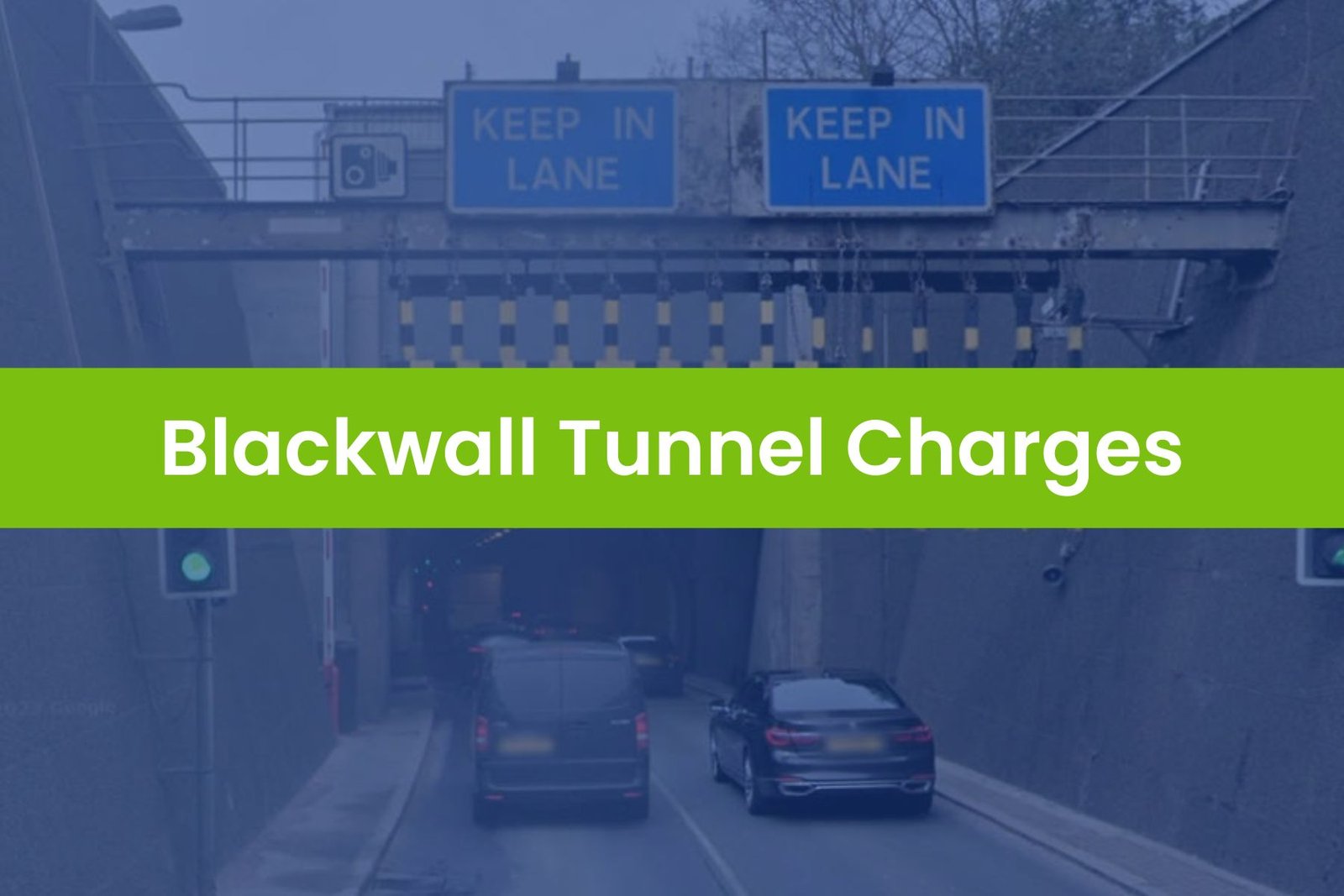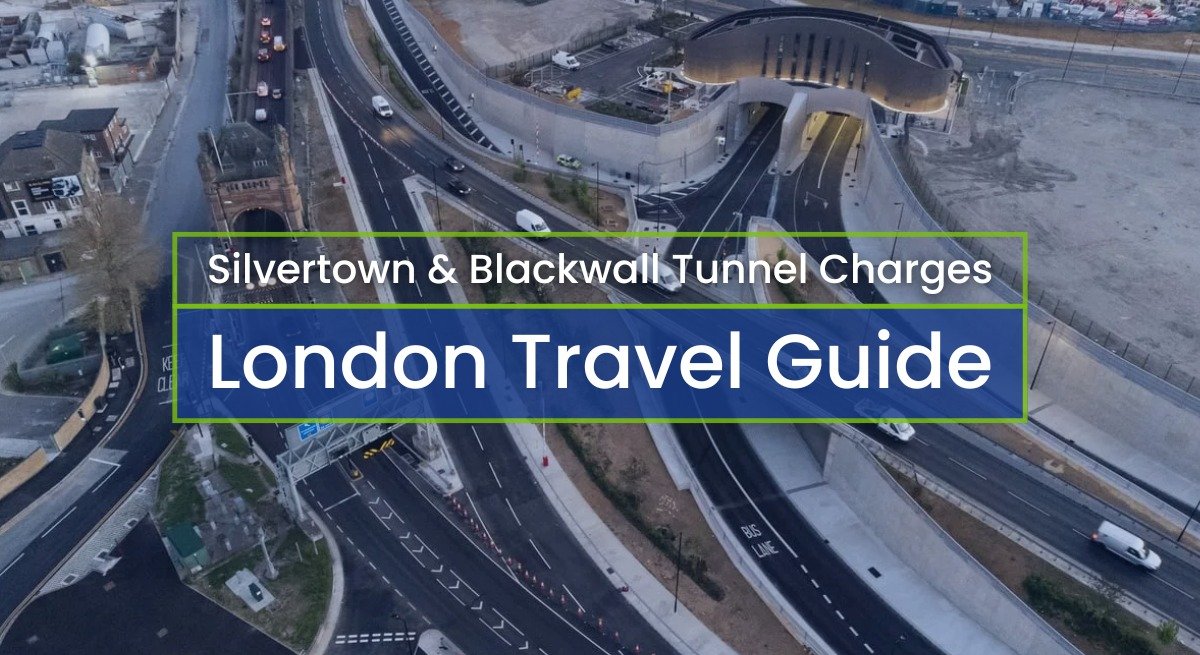London transport network is evolving rapidly, and with the new Silvertown Tunnel nearing completion, both Silvertown and Blackwall Tunnels are expected to become part of a new toll charging system.
Understanding how these tunnel charges will work is essential for every London driver whether you’re commuting daily, managing a business fleet, or planning airport transfers.
This detailed guide explains everything you need to know about Silvertown and Blackwall Tunnel charge including toll prices, exemptions, payment methods, and how these changes will affect drivers and local travel routes.
Introduction to the Silvertown and Blackwall Tunnels
The Blackwall Tunnel, built in the late 19th century, is one of London’s most critical river crossings, connecting Greenwich in South London to Tower Hamlets in East London. It carries tens of thousands of vehicles daily making it a vital link for commuters and businesses.
The Silvertown Tunnel, currently under construction and expected to open in 2025, is designed to relieve congestion in the Blackwall Tunnel. It will provide an additional route under the River Thames, improving traffic flow and reducing delays caused by accidents and maintenance in the existing tunnel.
To ensure fair usage and to cover construction and maintenance costs, Transport for London (TfL) has confirmed that both tunnels will be subject to toll charges once the Silvertown Tunnel opens.
Why Are Tunnel Charges Being Introduced?
The main reason for introducing toll charges on both tunnels is to manage traffic demand and reduce congestion. The Blackwall Tunnel is currently free to use, but it suffers from heavy traffic jams particularly during rush hours.
The Silvertown Tunnel aims to provide a more efficient crossing, but TfL fears that making it free would only shift congestion between the two tunnels. A toll system ensures that traffic is evenly distributed while generating funds for tunnel maintenance, road safety, and air quality improvements.
Expected Opening Date and Implementation Timeline
The Silvertown Tunnel is expected to open in early 2025, following several years of construction and planning.
Once operational, both Silvertown and Blackwall Tunnels will become tolled routes simultaneously. The charging system will likely be managed digitally through automatic number plate recognition (ANPR), similar to the Dart Charge system used at the Dartford Crossing.
TfL is currently finalizing details such as toll prices, exemptions, and payment methods, which are expected to be confirmed closer to the opening date.

Predicted Silvertown and Blackwall Tunnel Charges
While the exact prices have not yet been officially announced, early consultations suggest the tolls will be comparable to the Dartford Crossing, which currently costs around £2.50 for cars and £3.00 for larger vehicles.
Based on preliminary estimates:
- Cars: £2.00 – £2.50 per journey
- Vans and minibuses: £3.00 – £3.50 per journey
- Lorries and HGVs: £5.00 – £6.00 per journey
- Motorbikes: Possibly free or discounted
These charges will apply each way, meaning you’ll be charged for both northbound and southbound crossings.
Regular commuters may benefit from discount schemes or auto-payment accounts to make frequent crossings more affordable.
How to Pay the Tunnel Charges
TfL will likely operate an online payment system similar to the Dart Charge. Drivers will not stop at toll booths; instead, cameras will automatically scan license plates, and payments will be processed digitally.
Expected payment options include:
- Auto Pay account – Register your vehicle and card for automatic payments.
- Online portal – Pay within 24 hours of crossing.
- Mobile app – Convenient payment for one-time crossings.
- Phone payment – For drivers without online access.
Failure to pay within the deadline may result in Penalty Charge Notices (PCNs), similar to congestion charge fines.
Who Will Be Exempt from the Charges?
TfL has indicated that certain vehicles and users may be eligible for exemptions or discounts. Although final details are pending, the following groups are likely to qualify:
- Emergency services vehicles (police, ambulance, fire).
- Blue Badge holders (disabled drivers).
- Public buses and licensed taxis.
- Electric and zero-emission vehicles may receive reduced rates initially.
- Residents’ discounts for those living near the tunnels.
It’s expected that local residents in Greenwich and Newham boroughs may receive special discounts or capped fares to ease the financial impact.
Impact on London Drivers and Businesses
The introduction of Silvertown and Blackwall Tunnel charges will have a notable impact on London drivers, especially those who regularly travel across the River Thames for work or deliveries.
Businesses operating courier services, airport transfers, and transport fleets may need to factor tunnel tolls into their pricing or logistics planning.
However, TfL believes the new system will bring long-term benefits, including:
- Reduced journey times during rush hours.
- Lower emissions and improved air quality.
- Better traffic flow and road safety.
For professional drivers, such as those from Minicabs.co.uk, it means more predictable travel times for airport transfers and local journeys.

Relation to Other London Charges
The tunnel tolls are separate from existing London charges, such as:
- Congestion Charge Zone (CCZ): Central London only.
- Ultra Low Emission Zone (ULEZ): Citywide for non-compliant vehicles.
- Dart Charge: For Dartford Crossing (M25).
Drivers crossing the Silvertown or Blackwall Tunnel will not automatically pay congestion or ULEZ fees unless they enter those specific zones. However, vehicles must still comply with ULEZ emission standards, or additional charges may apply.
Environmental and Traffic Benefits
One of the key objectives of introducing Silvertown and Blackwall Tunnel charges is to reduce air pollution and carbon emissions in East London.
The new Silvertown Tunnel will feature:
- Dedicated bus lanes, including electric bus routes.
- Modern ventilation systems to manage emissions.
- Traffic flow management to reduce idling time.
By charging drivers a small toll, TfL hopes to encourage greener travel choices, such as carpooling, public transport, and electric vehicle use.
Technology Behind the Toll System
The tunnels will use Automatic Number Plate Recognition (ANPR) cameras, allowing seamless, barrier-free tolling.
This smart technology ensures:
- No stopping or delays at toll points.
- Accurate detection of registered vehicles.
- Integration with TfL payment systems for real-time billing.
This mirrors systems already used successfully across the UK, such as the M6 Toll and Dartford Crossing.
What Local Residents Should Know
Residents in Greenwich, Newham, Tower Hamlets, and surrounding boroughs should prepare for changes in traffic patterns once tolling begins.
Although tolls may add a small cost, they will also:
- Reduce traffic congestion on local roads.
- Improve air quality around the Thames crossings.
- Provide more consistent journey times for commuters and businesses.
TfL is expected to announce local consultation programs where residents can share feedback and learn about discounts or exemptions before full implementation.
Frequently Asked Questions (FAQs
1. When will the Silvertown Tunnel open?
The Silvertown Tunnel is expected to open in 2025, and at that time, both Silvertown and Blackwall Tunnels will introduce toll charges.
2. Will the Blackwall Tunnel remain free?
No. Once the Silvertown Tunnel opens, both tunnels will become tolled routes to manage traffic evenly and prevent congestion shifts.
3. How will I pay the tunnel toll?
Payments will be made digitally via TfL’s online system, mobile app, or Auto Pay account. Cameras will automatically register your vehicle as you cross.
4. Will electric vehicles pay the toll?
Electric and zero-emission vehicles may receive discounts or exemptions, though final details will be announced by TfL before the system launches.
5. What happens if I don’t pay the toll?
If you fail to pay within the allowed time frame, you may receive a Penalty Charge Notice (PCN), similar to other TfL traffic fines.




Leave a Reply